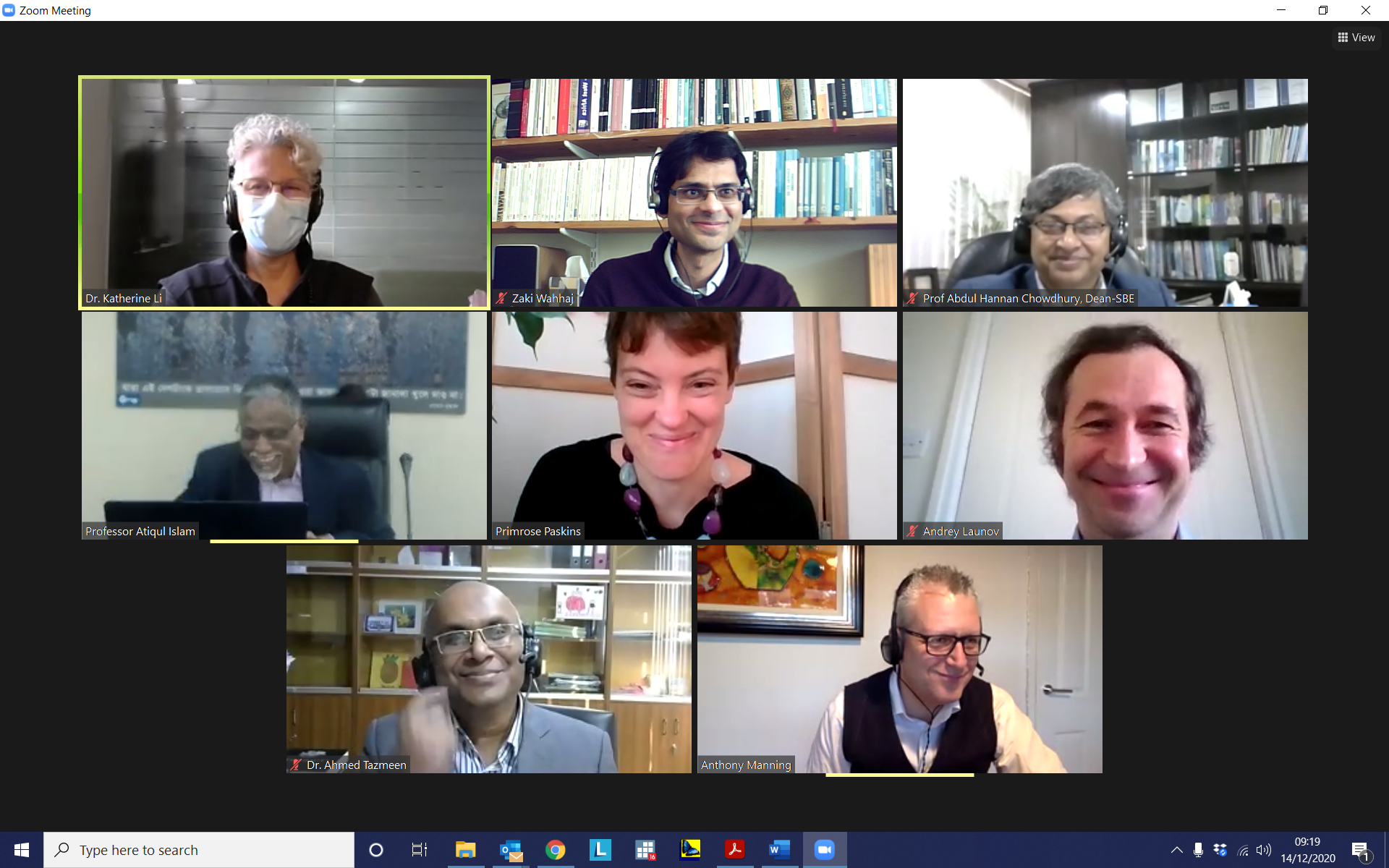On 14th December 2020, Kent signed a historic Memorandum of Understanding with North South University (NSU) in Bangladesh in an online ceremony to develop collaboration in student mobility, staff exchange, joint research supervision, and research projects.
An immediate goal of the MoU is to enable students from Kent’s MSc Economics programmes to travel to Bangladesh for their dissertation research, for data collection and analysis under joint supervision by staff in the School of Economics at Kent and the Department of Economics at NSU.
Dr Zaki Wahhaj Reader at the School of Economics explained how the agreement came about. “I was put in touch with the academic institution in Bangladesh by a former PhD student of mine who was an alumnus of the institution. From that point on, the collaboration developed organically.”
“The motivation behind the incentive is to strengthen Kent’s MSc Economics programmes, in particular to make them more attractive for potential students interested in research in developing countries.” Wahhaj told us “It will also, hopefully, provide a basis for further collaboration in teach and research with partners in a developing country where the UN’s Sustainable Development Goals present both significant challenges and opportunities. I hope that this development will help with student recruitment in Kent’s MSc Economics programmes and, over a longer term, lead to joint research projects between Kent and academic researchers in Bangladesh.”
Bangladesh is among the countries where the UN’s Sustainable Development Goals (SDGs) faces some of its most difficult challenges but also where some of the most impressive SDG gains are being made. The MoU, the first of its kind between Kent and a university in Bangladesh, exemplifies Kent’s commitment to engage in academic collaboration to address the SDGs.
The MoU also opens up opportunities for collaboration in teaching and collaboration a number of other disciplines where both institutions have a strong presence including Political Science, Law, Environmental Science, Biosciences and Computing.

